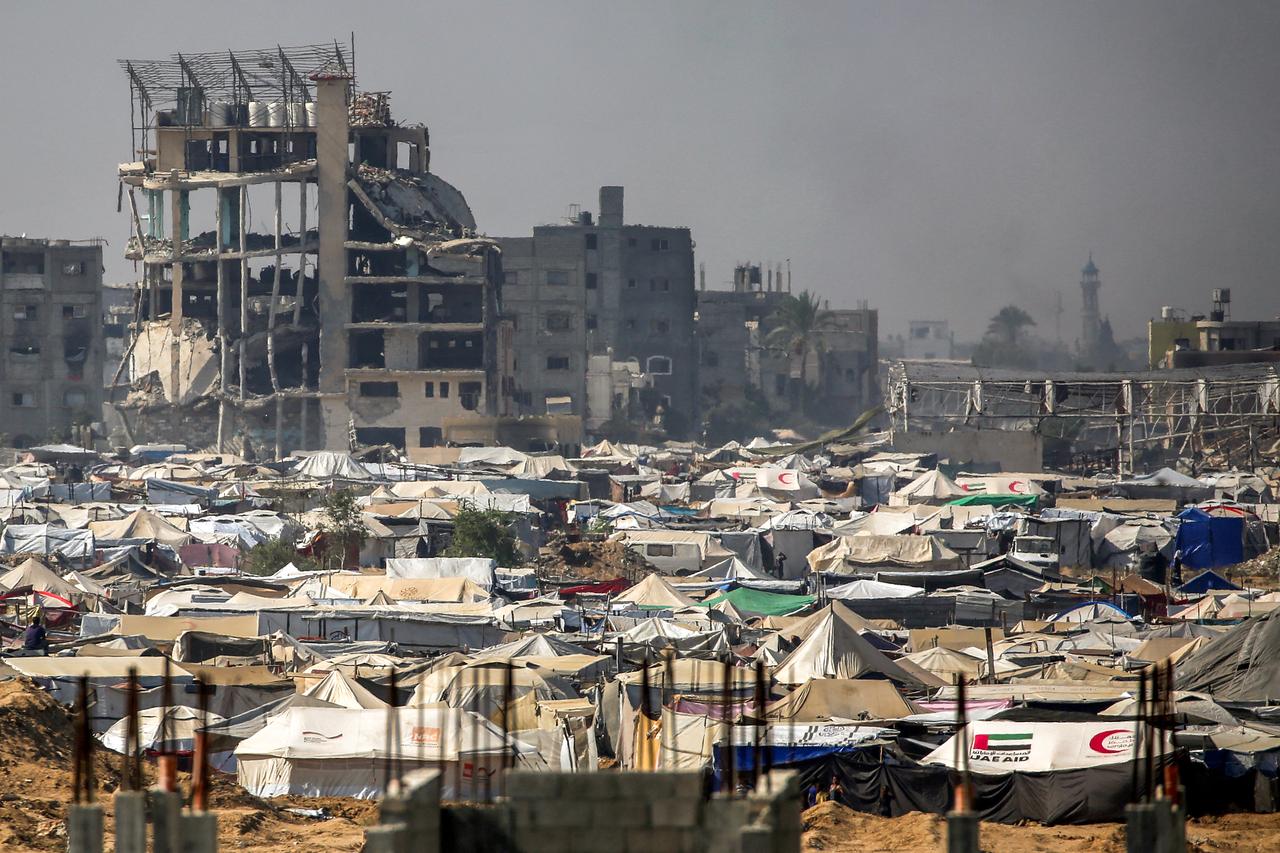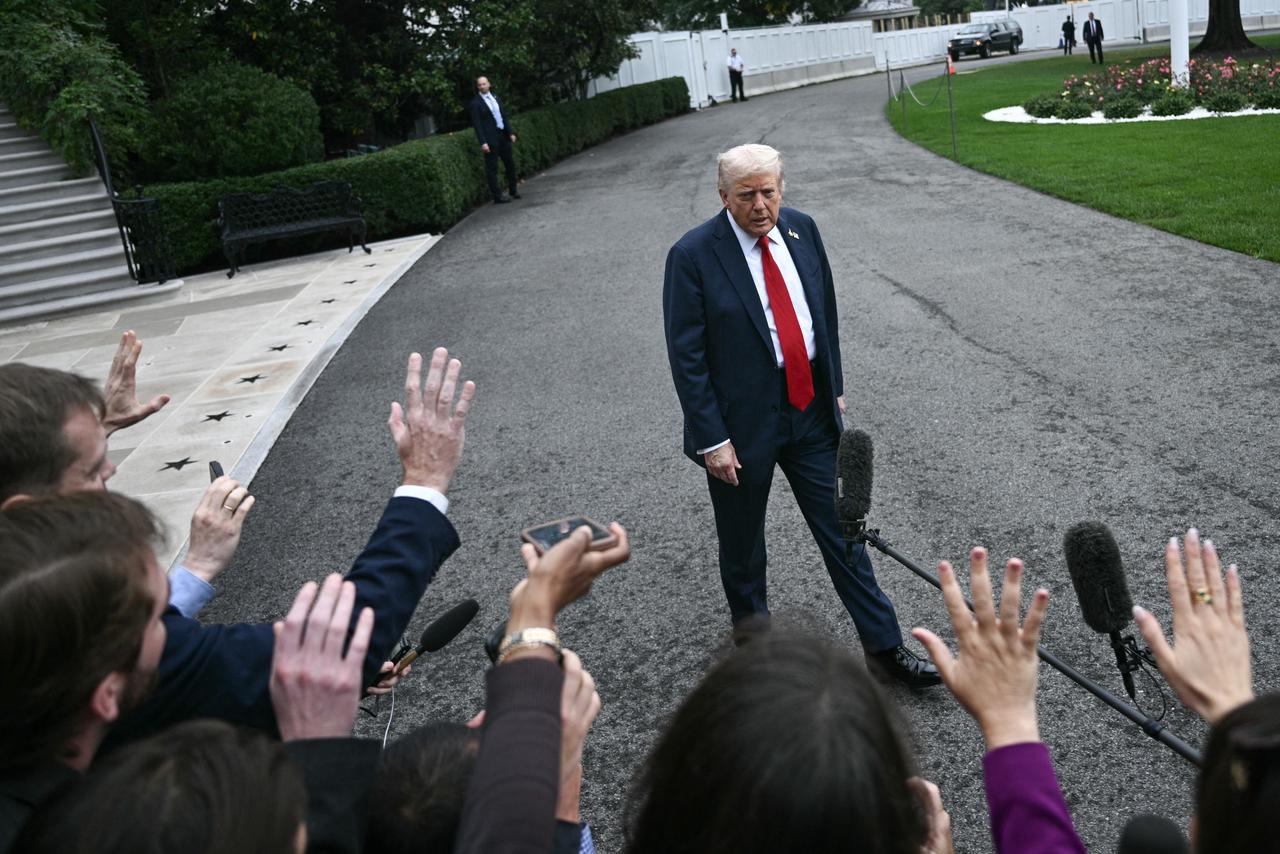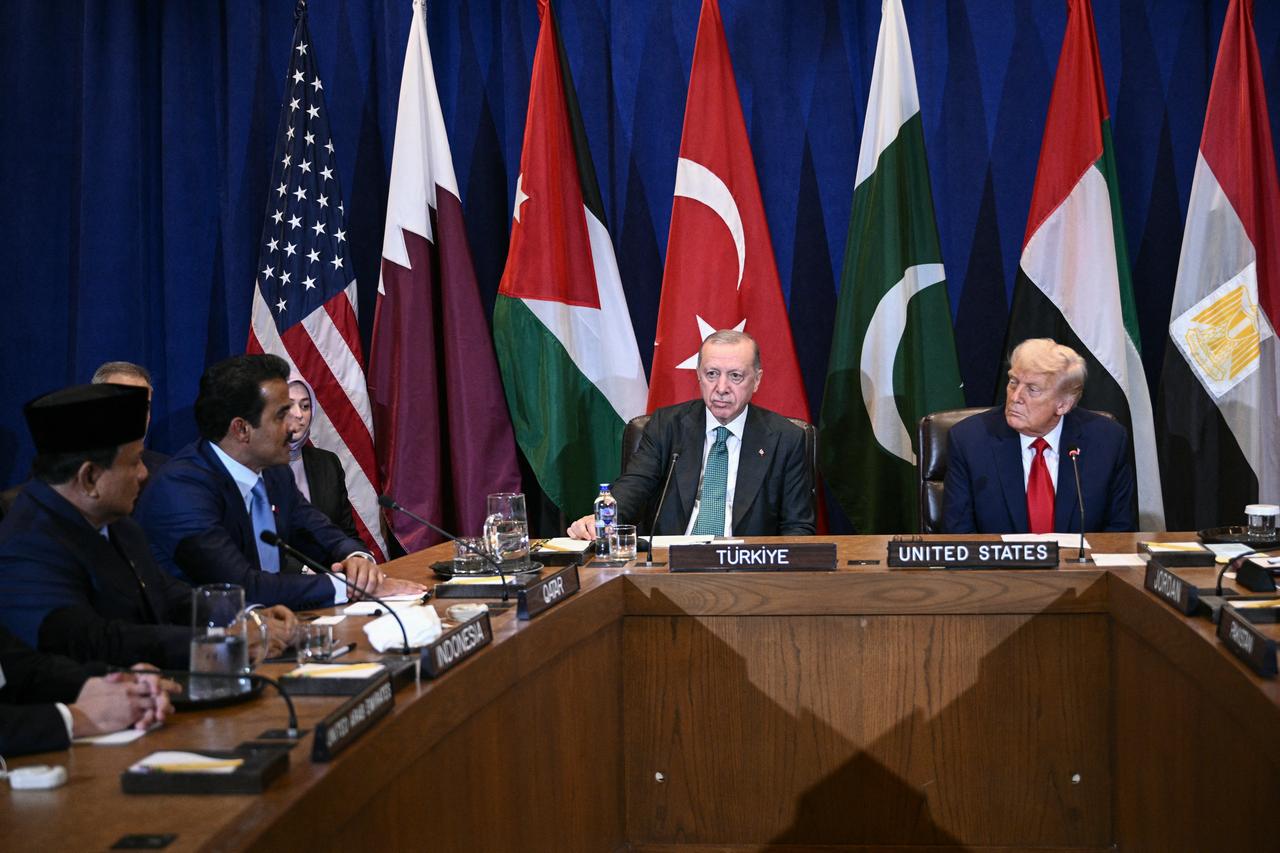
Qatar, Egypt and Türkiye are urging Hamas to give a positive response to U.S. President Donald Trump's proposal for ending the war in Gaza, with mediators meeting the group's leaders twice in 24 hours to push for acceptance, according to two sources with knowledge of the talks speaking to Axios on Tuesday.
The three countries, which maintain the closest ties to Hamas and serve as primary intermediaries between the group and Israel and the United States, have intensified diplomatic efforts following Trump's Tuesday ultimatum, giving Hamas three to four days to respond.
"We have one signature that we need, and that signature will pay in hell if they don't sign. I hope they sign for their own good and create something really great," Trump said in a speech before hundreds of generals and admirals in Quantico, Virginia.

Qatari Prime Minister Mohammed bin Abdulrahman al-Thani and Egyptian intelligence chief Hassan Rashad presented the plan to Hamas leaders in Doha on Monday night while Trump unveiled it publicly, a source with knowledge said.
Al-Thani advised Hamas leaders that "this was the best deal he was able to get for them and it won't get much better," according to the source who spoke to Axios.
The Qatari prime minister stressed that based on his conversations with Trump, he was confident the U.S. president was seriously committed to ending the war, calling it "a strong enough guarantee for Hamas."
Hamas leaders reportedly told al-Thani they would study the proposal in good faith, the source said.
On Tuesday, al-Thani and Rashad met again with Hamas leaders, this time joined by Turkish intelligence director Ibrahim Kalin, reinforcing the regional pressure for acceptance.
Speaking to Al-Jazeera ahead of the second meeting, al-Thani said he hopes "everyone looks at the plan constructively and seizes the chance to end the war."
"We and Egypt explained to Hamas during yesterday's meeting that our main goal is stopping the war. Trump's plan achieves the main goal of ending the war, though some issues in it need clarification and negotiation," the Qatari prime minister said.
The plan offers Hamas significant gains, including the release of 2,000 Palestinian prisoners and a surge in humanitarian aid. However, it also requires major concessions, some of which were added at the request of Israeli Prime Minister Benjamin Netanyahu, sources said.
The proposal calls for a phased Israeli withdrawal and requires Hamas to fully disarm, something the group has refused to do until now. Changes to the conditions and timetable for Israel's withdrawal from Gaza have "infuriated Arab officials" and might prove difficult for Hamas to accept, according to sources.
Al-Thani noted that Hamas needs to reach consensus with all other Palestinian factions in Gaza before issuing an official response.

While al-Thani described Trump's plan as "still at an early stage and needs development," emphasizing that more negotiations were needed to turn principles into implementation, Trump contradicted this assessment Tuesday.
"There isn't much room" to negotiate further, Trump said.
U.S. officials said they are prepared to discuss specific Hamas requests for clarifications or amendments but will not reopen the entire plan for discussion.
U.S. and Israeli officials expect Hamas to give a generally positive response to Trump's proposal, with some reservations, according to sources familiar with the negotiations.